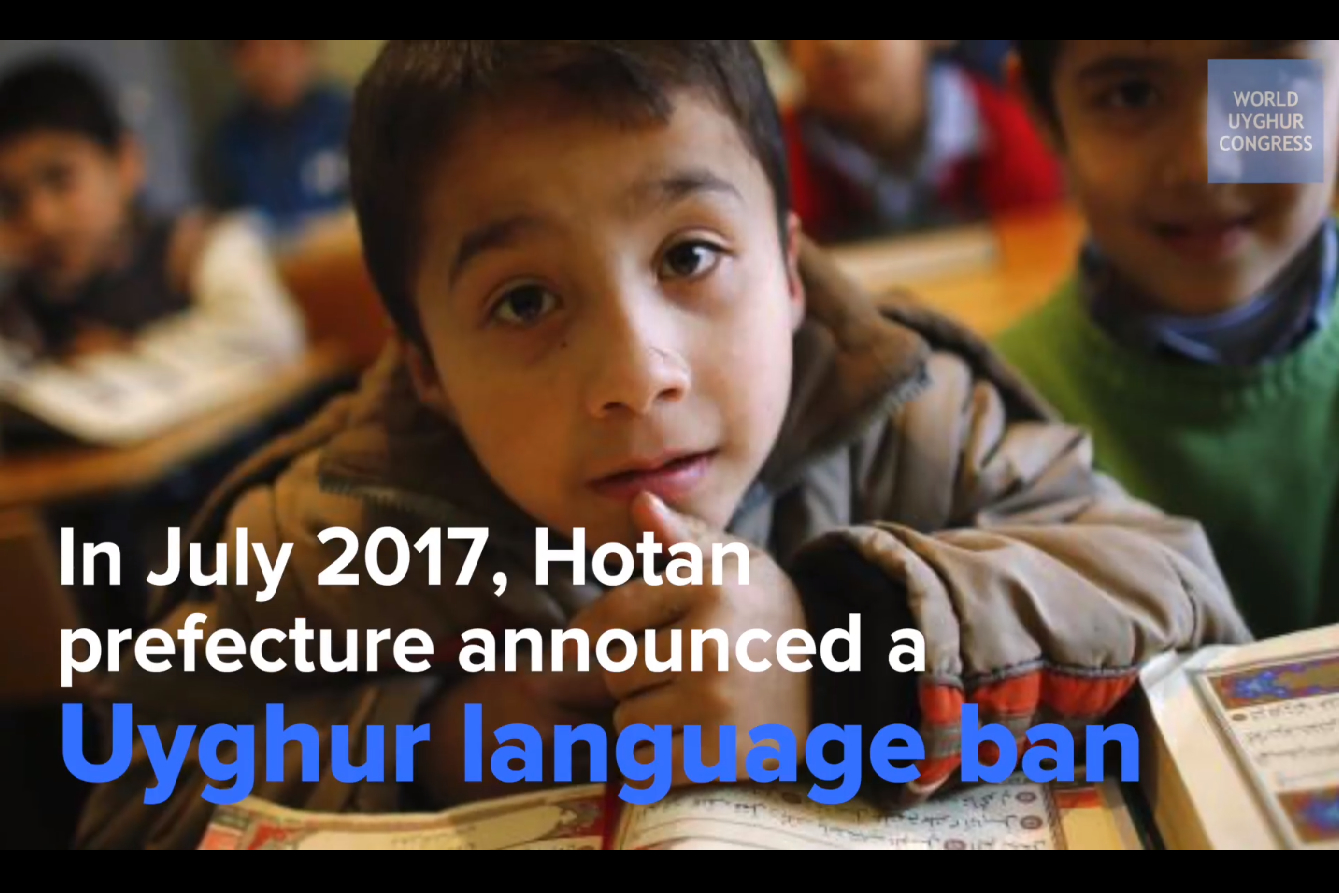On International Mother Language Day the WUC Calls on China to Reverse Uyghur Language Ban

Press Release – For immediate release
21 February 2018
Contact: World Uyghur Congress www.uyghurcongress.org
0049 (0) 89 5432 1999 or [email protected]

On UNESCO’s International Mother Language Day, the World Uyghur Congress reminds the international community that the Uyghur language continues to be critically suppressed by the Chinese government in East Turkestan, with efforts over the last year amounting to an outright ban of the language as a medium of instruction in schools affecting hundreds of thousands of students.
The Uyghur language has been under threat for many years as assimilatory policies focus on language as a central element of identity. The Chinese government had been making real efforts to weaken and replace the Uyghur language through its so-called ‘bilingual education’ system, which has been developing for at least two decades.
In a more drastic step, a five-point directive was issued by Hotan’s Education Department in late June 2017 outlawing the use of the Uyghur language for students at all education levels from primary to secondary schools. The ban is in clear violation of the International Covenant on Civil and Political Rights, the Convention on the Rights of the Child as well as China’s own Regional Ethnic Autonomy Law.
For the regional government, ‘bilingual education’ does not mean to maintain both Mandarin and Uyghur at the same level in terms of teaching, but to transition Uyghur students at all levels from education in their mother tongue to education in Chinese. In practice, the law prohibits young Uyghurs from being taught in the Uyghur language and even prevents them from speaking to one another in their mother tongue between classes or on campuses.
Funding for the program has seen drastic increases over the last two decades as well as the sheer number of Uyghurs enrolled. In 1995, 5,533 students were enrolled in ‘bilingual’ schools, by 2007 it was 294,000, by 2010, 994,300 and by 2012, 1,410,000. The regional government has now set a target of 2,600,000 students in East Turkestan by 2020 which constitutes nearly all non-Chinese students.
The right to operate Uyghur language schools has been largely supplanted by the exclusive study of Mandarin in some cases. Employment opportunities in cities have dwindled for those without knowledge of Mandarin, further excluding large swaths of the Uyghur community who have limited working knowledge of the language.
According to UNESCO, “The date represents the day in 1952 when students demonstrating for recognition of their language, Bangla, as one of the two national languages of the then Pakistan, were shot and killed by police in Dhaka, the capital of what is now Bangladesh.” This serves as a potent reminder of the power that language and culture has, but also some of the dangers of a society fragmented along cultural or linguistic lines.
In relation to the Uyghur language, broad issues have only been exacerbated by state policies over the last decade. Recent policies have signalled a move away from the historic “separate but equal” approach to ethnic groups, with much greater focus on assimilation as a goal.
The WUC therefore recalls the tremendous importance of the freedom to use one’s own mother tongue – something that cannot be denied to millions of Uyghurs in China. Multilingualism and multiculturalism go hand in hand and by sustaining these institutions we act to promote harmony, inclusivity and understanding in the process.

